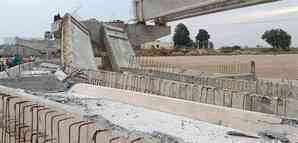Marine bacteria may produce toxic fire retardants
New York, June 30 (IANS) A widely distributed group of marine bacteria can produce compounds nearly identical to toxic man-made fire retardants, says a study. The toxic compounds are known as polybrominated diphenyl ethers (PBDEs), a subgroup...

New York, June 30 (IANS) A widely distributed group of marine bacteria can produce compounds nearly identical to toxic man-made fire retardants, says a study.
The toxic compounds are known as polybrominated diphenyl ethers (PBDEs), a subgroup of brominated flame retardants that are combined into foam, textiles and electronics to raise the temperature at which the products will burn.
"We find it very surprising and a tad alarming that flame retardant-like chemicals are biologically synthesised by common bacteria in the marine environment," said Bradley Moore, a professor at the University of California, San Diego School of Medicine in the US.
Although the presence, persistence and ability of PBDEs to accumulate in the fatty tissues of marine animals have long been recognised, researchers had previously believed the compounds were anthropogenic in origin and due to ocean pollution.
More recent examinations have shown a pervasiveness of PBDEs in prey and predatory species, suggesting a natural microbial source of the compounds as well as an anthropogenic one.
The study is the first to isolate and identify bacteria that synthesise these compounds and whose presence may help explain the observed distribution pattern of PBDEs in the marine food chain.
In the study, the researchers identified a group of ten genes involved in the synthesis of more than 15 bromine-containing polyaromatic compounds, including some PBDEs.
The findings appeared online in the journal Nature Chemical Biology.

 cityairnews
cityairnews 
















